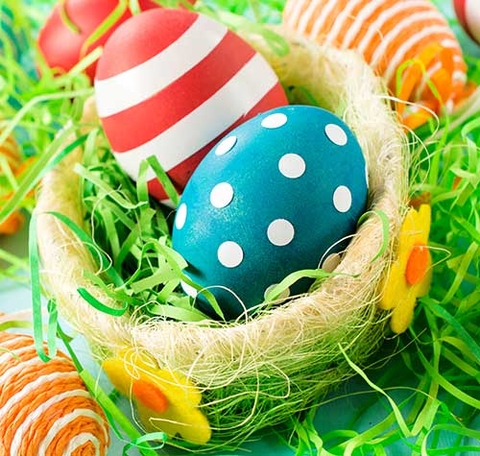Handling raw eggs safely
If your family enjoys dyeing eggs for decorations, games and eating, remember they are a perishable food and need to be handled accordingly.
The shells are the egg's first line of defense, so work with eggs carefully to prevent cracking. Eggs with cracked shells should not be decorated or eaten.
Because raw eggs may have Salmonella or other bacteria, wash your hands with warm water and soap before handling eggs and at every step of egg preparation. This includes cooking, cooling, dyeing and even when hiding them for games.
Directions for hard cooking eggs
Hard cooking eggs should kill Salmonella bacteria, but will not keep them from spoiling or getting re-contaminated. Refrigerate hard-cooked eggs before dyeing them and keep them refrigerated when you are not using them. Do not leave eggs out of the refrigerator for more than two hours.
When decorating the eggs, be sure to use a food-safe dye and work with chilled, hard-cooked eggs.
To hard-cook eggs:
- Place a single layer of eggs in a saucepan.
- Add cold water to come at least 1 inch above the eggs.
- Cover and bring the water to a boil; turn off the heat.
- Let the eggs stand covered in the hot water for 15 minutes for large eggs, 12 minutes for medium, and 18 minutes for extra large.
- Immediately run cold water over the eggs; when they are cool, drain and refrigerate.
Eggs prepared this way have less of a green tinge around the yolk, fewer cracks and are easier to peel. Another tip for reducing egg peeling frustration is to age eggs in the refrigerator for a week to 10 days prior to hard cooking.
When decorating the eggs, be sure to use a food-safe dye and work with chilled, hard-cooked eggs. Consider coloring one set of eggs for decorating or the egg hunt and another set for eating.
Hard cooked eggs should be used within one week of cooking.
Reviewed in 2021


